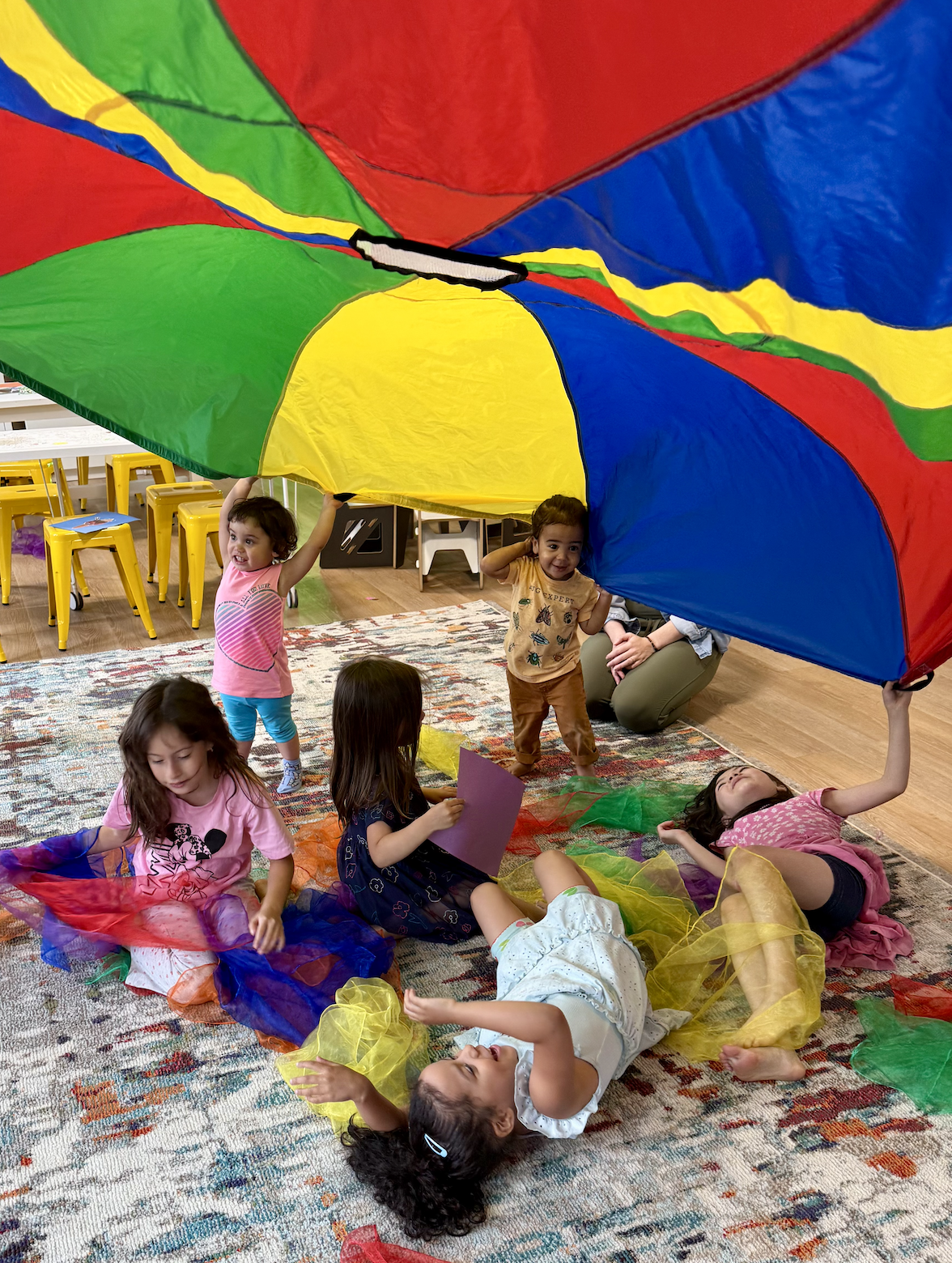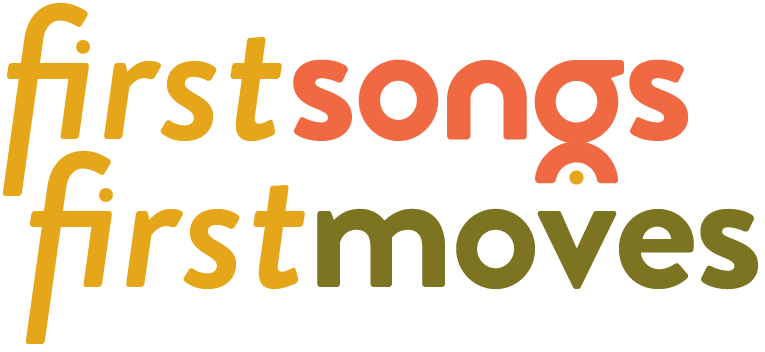Nurturing Musical Beginnings for Babies, Toddlers, & Young Children
Empowering families with the necessary tools to build the musical foundation of children during their most critical and sensitive periods of development, ages 0-3
Music Play for Mixed Ages 0-3
Babies and toddlers explore music through movement, song, and play. Caregivers help create a musically rich environment that supports each child’s development at their own pace while learning rich melodies, rhythms, music patterns, and ideas for musical interaction.
“I was so pleasantly surprised by what Music Play offers local children. It is much more than singing and dancing and really focuses on the development of musicality with a natural and organic approach.
Ms. Jenie is dedicated, knowledgeable and passionate about music.”
-Chrystina
PROGRAM PLANS
The Music Play program blends in-person classes at the studio with online resources to foster music making at home.
Music Play: Family Foundations (Recommended)
With access to 2-3 monthly in-person classes, class recordings, online parent learning, and expanded resources, this plan helps families build strong routines for weaving music into daily life and nurturing lasting growth together.
Music Play: Family Explorations
The perfect first step into music! Families enjoy 1 to 2 in-person classes per month, online support and resources that make it easy to spark musical play at home.
Music Play Classes @Brussels
In-person classes are 45 minutes of guided music experiences that take place on select Saturdays and Mondays 2-3x/month. The class schedule will continually be updated on the Studio Calendar. Families enrolled in a Music Plan do not need to book in-person classes ahead of time.
Saturdays | 10am Music Play for Mixed Ages 0-3
Mondays | 10am Music Play for Mixed Ages 0-3
3 Brussels St. #224 Worcester, MA
Class times may be adjusted based on participating families’ scheduling preferences. All families enrolled in Music Play or Piano Pathway will receive access to our creative space events, open play, and community hub.
Before enrolling:
1) Please complete the Registration Form before selecting your music plan(s).
2) Login to create your studio account before enrolling in a class or program. You will be able to manage your plan and payments through this account.
Looking for a babies’ only class?
A 4-part workshop series begins February 28th:
“Through classes this year, I have come to value how much dedication Jenie puts into preparing for her classes. She always has a strategy for which songs will be in the rotation along with appropriate instrument exposure for the ages of the children. I have loved hearing my sons echo our voices in response to the music.
During all sessions with Jenie, she takes great care to engage each child individually.”
-Corinna
“We have incorporated not only the songs, but many of the lessons that we learned in class into our lives. Utilizing songs to give my daughter a direction or to help her follow a routine has been so helpful as she has entered the toddler phase. This use of music was a parenting skill that I learned from Jenie in class. In this way, the class was about more than just singing and moving together.
It was truly about fostering a love of music and weaving music into all that we do.”
-Stephanie
Not all music is equal. How is Music Play different?
Backed by research, grounded in Music Learning Theory (MLT): Classes are based on neuroscience and Gordon’s MLT approach, ensuring your child is developing true musical thinking.
Expertly designed by a specialist in early childhood music education: This isn’t a cookie-cutter franchise program — it’s carefully developed by an educator who deeply understands how babies and toddlers learn music.
Authentic music exposure, not simplified jingles: Your child will experience a rich variety of tonalities and meters — far beyond what most programs and online playlists offer, developing a full and flexible musical vocabulary.
Engaged caregivers, empowered learning: You’ll learn how to become your child’s musical play partner, with tools and techniques that integrate into your daily routines at home.
Development-first, not performance-first: We focus on building the inner musician first — nurturing deep musical understanding and whole-child development.
Why the earliest years matter
Do babies and toddlers really need music class?
Neuroscience and early childhood research affirm that the first three years of life represent a critical window for musical development. During this time, the brain is exceptionally receptive to sound, rhythm, and pitch. Without rich musical exposure, innate musical aptitude rapidly declines. But when nurtured intentionally, this potential can grow into extraordinary lifelong musical fluency.
In the first months and years of life, a child’s brain is exquisitely tuned to absorb sound — not just as a sensory experience, but as nourishment. Neuroscientists describe sound as a cognitive nutrient — vital fuel for brain development. For infants, sound is music, and music is information. When we sing to babies, we’re not just soothing them — we’re feeding their brains with the building blocks of understanding: pitch, rhythm, timbre, and emotion. Without this rich musical input during the brain’s most receptive stage, babies don’t just lose potential music aptitude — they miss out on foundational learning skills. Song helps lengthen attention span, deepen cognitive processing, and spark neural pathways that shape how a child learns for life. A lack of this nourishment can mean diminished attention, reduced engagement, and a lower capacity to process the world around them.
This is why we don’t wait for “instrument-readiness.” We meet children where they are during this crucial early period — tuned into sound, wired for music, and ready to grow. Through play-based experiences, live singing, movement, and curated songs, children don’t just learn music — they live it. They naturally begin to audiate (hear and think music internally), develop rhythmic coordination, express themselves creatively, and establish the foundation for musical fluency, including reading notation, improvising, and performing with ease.
What is in a Music Play class?
• A Rich Musical Environment
Immerse children with songs in various tonalities and chants in different meters;
Allow children to learn through listening, absorption and exploration
• Ideas for Caregivers
Recognize musical responses and interact musically with your child
• Purposeful Space and Responsiveness to Child-led Play
Provide opportunities for children to process learning and respond to children’s spontaneous musicking
• Informal Pattern Guidance
Expose children to music vocabularies
• Body Awareness and Movement
Explore and model levels of movement including flow and to steady beat
Just like learning a language, music is best learned by immersion and repetition of live singing and spontaneous interaction. Music Play classes are not designed to entertain young children, but rather to create a playful environment that focuses on using the singing voice, chants and movement that best serve their musical development. To maximize music learning at this stage, use of recordings and language is kept to a minimum in our classes. The music educational process also takes consistency, purposeful guidance and the willingness of caregivers to participate in active music-making. Together, we will give children what they need - the foundation for a lifetime of music.







